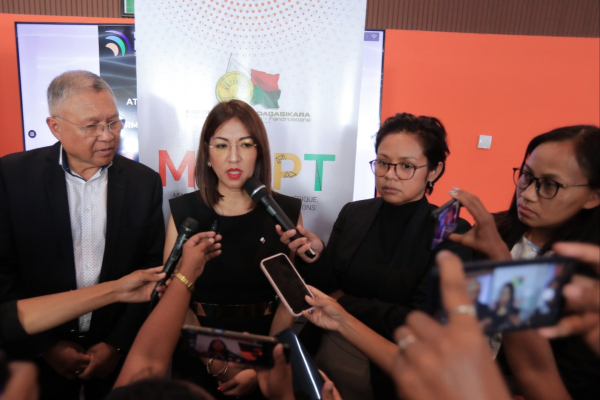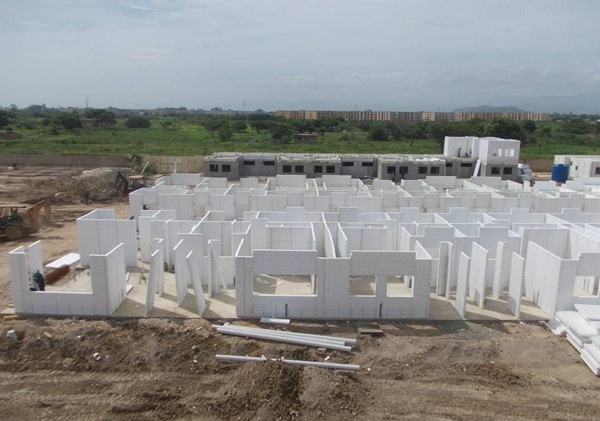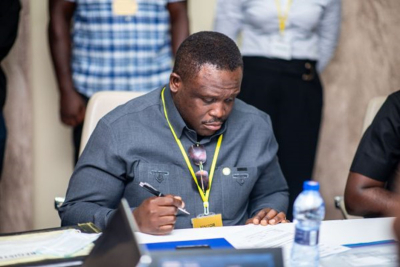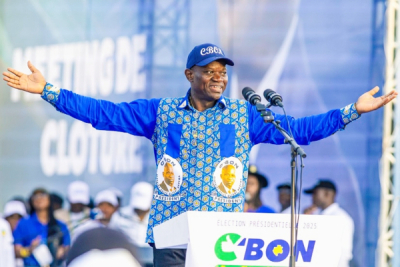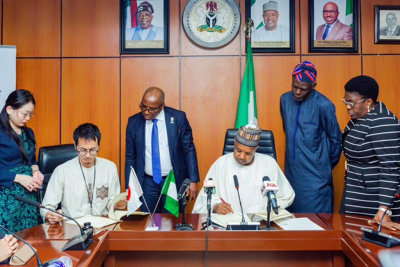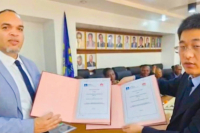- Madagascar launches $24 million DECIM program to distribute smartphones and boost digital access
- 664,000 devices to be distributed, including 400,000 for women and girls
- Initiative targets increased internet adoption and digital inclusion, especially in remote areas
Last week, the government of Madagascar kicked off a program to distribute digital devices, including smartphones, to its citizens under the $24 million Digital and Energy Connectivity for Inclusion in Madagascar Project (DECIM). The initiative aims to boost internet adoption and the use of digital services nationwide.
According to the CSM Association (GSMA), the inability to afford internet-enabled phones is a major obstacle to technology adoption in areas with existing mobile network coverage. While the GSMA notes that many devices are now priced below $100, this still remains unaffordable for a large segment of the population.
In Madagascar, a $100 smartphone represents nearly 20% of the country’s annual gross national income (GNI) per capita, which the World Bank estimated at $510 in 2023. Even with an average phone lifespan of three years, the cost of acquisition remains substantial, particularly given that many basic needs take precedence.
As part of the initiative, the Malagasy government plans to distribute 664,000 connected digital devices, with 400,000 specifically earmarked for women and girls. The program seeks to reduce disparities in technology access and bolster digital and economic inclusion. A dedicated platform for the “Sale of Digital Devices with Internet Access” will soon be launched, featuring targeted subsidies, a credit line for distributors and financial institutions, a focus on remote areas, and the promotion of mobile money for financial inclusion.
This government effort aligns with broader digital transformation goals outlined in the Digital Strategic Plan (PSN) 2023–2028. Authorities aim to position Madagascar as a key player in Africa’s digital economy by developing telecommunications, e-government services, and digital inclusion. The government is targeting a 6% contribution from the digital sector to GDP by 2028, up from just 1.5% in 2019.
However, smartphone ownership alone does not guarantee internet usage or engagement with digital services, even where network coverage exists. “Among current mobile internet users, many would like to use it more but face a range of barriers to increasing their usage. The main constraints include security concerns, affordability, and connectivity experience. Perceived lack of relevance also plays a role,” the GSMA noted in its State of Mobile Internet Connectivity Report 2024, published in October 2024.
It is important to note that the Malagasy government has not announced any subsequent phases for the program, which remains limited in scope given the country’s estimated population of 31.2 million. In fact, according to the International Telecommunication Union (ITU), approximately 80% of the Malagasy population do not use the internet.
By Isaac K. Kassouwi,
Editing by Sèna D. B. de Sodji
Created by an Ivorian entrepreneur, the platform aims to tackle logistical hurdles and unclear practices in construction material supply.
Blok, an online commerce platform launched in 2023 by Waly K. N’Diaye and Yohann Behi, enables users—including contractors, small businesses, and individual buyers—to order construction materials directly from their smartphones, without needing to travel to physical stores. The Abidjan-based firm is targeting a fragmented supply chain with a mobile-first approach.
The startup first gained traction by offering geolocation and local address indexing services. It later pivoted toward the building sector, where demand is high but transparency and logistics remain major pain points.
Available on both iOS and Android, the Blok Africa app has been downloaded more than 500 times, according to Google Play Store data. Through the app, users can browse product listings, compare prices, choose quantities, and schedule deliveries directly to their worksites or retail shops.
But Blok isn’t just a tool for buyers. It also helps small-scale merchants and material distributors boost their visibility and manage inventory more efficiently. The platform is designed to formalize and digitize day-to-day operations in a sector that often runs on informal networks.
Blok Africa supports a range of payment methods, including mobile money platforms such as Wave, Orange Money, and MTN Money. For users who prefer to pay in cash, the company offers a pay-on-delivery option. “We deliver the same day if you order before 10 a.m., or the next day—either in the morning or afternoon depending on your preference,” the startup says.
By Adoni Conrad Quenum,
Editing by Feriol Bewa
With the upcoming rollout, Ghana is taking a significant step forward in building a more efficient, secure, and inclusive digital ecosystem.
Starting June 2025, SIM card re-registration in Ghana will go fully online, allowing citizens to complete the entire process online—no visits to physical registration centers will be required. The announcement was made on April 8 by Minister for Communication, Samuel Nartey George during a visit to Margins ID Group (Intelligent Card Production Systems) in Accra.
The initiative is part of the government’s broader effort to streamline public services and accelerate the country’s digital transformation. “This system will save time, improve accuracy, and offer a more convenient experience for all Ghanaians,” the Minister noted.
Under the new system, citizens will be able to register their SIM cards using their Ghana Card through a fully online platform, with automatic verification replacing in-person, manual checks.
Ghana’s SIM card re-registration campaign began in 2021, requiring all SIM holders to re-register their numbers using the Ghana Card, the national identity document. However, the process has faced multiple delays due to low registration rates and logistical challenges—including long queues, technical issues, and limited access to registration centers.
According to an update from the Ministry of Communications dated November 11, 2022, and signed by then-Minister Ursula Owusu-Ekuful, 30,011,082 individuals had completed the first phase of registration by linking their Ghana Card to their SIM number. Of these, 20,892,970 had completed the full process, including biometric verification—representing nearly 70% of total registrations at the time.
Despite the progress, millions of SIM cards remained unregistered, prompting repeated deadline extensions and concerns about service disruptions for those unable to complete the process. By moving to a fully online system, the government aims to close the remaining registration gap and reduce the administrative burden for both citizens and telecom operators. The updated system is expected to improve access, boost compliance, and enhance data accuracy.
Beyond convenience, online re-registration is also critical to national goals. The government hopes to strengthen security by curbing fraudulent SIM use and ensuring better regulation of the telecom sector through accurate subscriber data.
Hikmatu Bilali
Ethiopia will host ETEX 2025, the Ethiopian Tech Expo, from May 16 to 18, 2025. The event highlights Ethiopia’s rapid digital transformation.
Organized by QNA and hosted by the Information Network Security Administration (INSA) and the Ethiopian Artificial Intelligence Institute (EAII), the event will gather over 10,000 attendees, 100+ speakers, 200+ government entities, and 100+ exhibitors. It will feature a hackathon, AI & robotics competitions, and research showcases.
Key Themes include Cybersecurity & Digital Trust, Artificial Intelligence & Emerging Tech, and Smart Cities & Digital Infrastructure, among others.
Gabon has long prioritized digital technology. Building on this foundation, newly elected President Brice Clotaire Oligui Nguema aims to accelerate progress, positioning the nation as a leading African technology hub through ambitious reforms and strategic investments.
Brice Clotaire Oligui Nguema, elected President of Gabon on Sunday after leading the country as Transitional President since the August 2023 military coup, has placed digital development as a key priority in his administration's six-pillar political program.
Oligui Nguema, recognizing digital technology's pivotal role in economic and social development, aims to modernize infrastructure, ensure equitable internet access, and position Gabon as a Central African technology hub.
A central component of his vision is the accelerated deployment of fiber-optic networks nationwide, with the goal of achieving widespread broadband coverage, particularly in underserved rural areas, to bridge the digital divide. He views connectivity as a fundamental right, ensuring all Gabonese citizens, public administrations, and businesses have access to fast, reliable, and affordable internet.
According to DataReportal, Gabon had 1.84 million internet users at the beginning of 2025, representing a 71.9% penetration rate. The government aims to achieve 100% penetration by strengthening infrastructure and ensuring nationwide digital service accessibility.
Building national data centers is also a priority to ensure digital sovereignty. These facilities will store sensitive state data locally and support a dynamic digital ecosystem. The first data center's construction was awarded to Indian company Shapoorji-Pallonji in 2023.
Supporting digital entrepreneurship and local innovation is another key initiative. The presidential program includes innovation hubs and tech incubators, such as the Gabonese Innovation Center, to support startups' growth. Access to financing, public procurement, and business opportunities will be facilitated, alongside modern coworking spaces to foster innovation.
Digitizing public administration is a reform priority. Modernizing institutions like the National Social Security Fund (CNSS) aims to improve service efficiency, enhance transparency in public fund management, and increase user satisfaction. A digital platform for public services is slated for launch in the first half of 2025 to digitize administrative procedures and combat delays and corruption.
This digital strategy is part of a broader state rebuilding effort, focusing on tools to track public spending, stricter project planning and execution, and civil service professionalization. The digital sector has contributed around 5% of Gabon's GDP for nearly five years, and the government aims to double this share through investment, innovation, and job creation.
Regionally, Gabon is a top performer. In 2024, it recorded an ICT adoption index of 74.7 out of 100, according to the International Telecommunication Union (ITU), ranking 10th in Africa. In e-government, it ranks 15th on the continent with a digital government development index of 0.5741, according to the United Nations.
Through this integrated approach, Oligui Nguema seeks to make digital technology a cornerstone of Gabon's renewal, aiming to build a sovereign, innovative, and inclusive tech ecosystem for sustainable growth, youth opportunities, and transparent governance.
Samira Njoya
The Abuja Start-up Hub could help spread innovation across regions, bridging the digital divide and boosting Nigeria’s participation in the tech economy
On April 10, the National Information Technology Development Agency (NITDA) announced it had signed an agreement with the Japan International Cooperation Agency (JICA) to establish the Abuja Start-up Hub, backed by a JPY 1.6 billion (USD 12.1 million) grant.
Speaking at the event, Senator Abubakar Atiku Bagudu, Minister of Budget and Economic Planning, reaffirmed Nigeria’s commitment to inclusive innovation and economic diversification.
The signing ceremony, held at the Federal Ministry of Budget and Economic Planning in Abuja, marks a new chapter in Japan–Nigeria bilateral cooperation, with a focus on fostering digital innovation, entrepreneurship, and youth empowerment.
Spanning five years and eight months, from April 2025 to December 2030, the Abuja Start-up Hub will be jointly implemented by NITDA and the Nigeria Sovereign Investment Authority (NSIA). The hub is envisioned as a launchpad for a new generation of Nigerian entrepreneurs capable of building scalable ventures and potentially becoming Africa’s next tech unicorns.
The partnership taps into Nigeria’s large and rapidly growing talent pool, which holds immense potential to drive technological progress and digital transformation. According to a 2022 report by NITDA and Co-Creation Hub (CcHub) titled "IT Talent Gap Assessment in Nigeria," roughly one-third of the country’s population aged 15 to 35 comprises a tech-savvy, innovation-driven demographic eager to embrace emerging technologies. This initiative creates a critical pathway to harness and nurture that potential through structured support, skills development, and entrepreneurial opportunities.
Hikmatu Bilali
To improve tourist experiences in Tunisia, Khouloud Kaabi has launched a platform designed to offer more engaging discoveries of the country's unique destinations.
Idwey, a digital platform developed by a Tunisian startup, provides travelers with locally rooted activities, including ecotourism tours, artisan workshops, and culinary immersions.
Founded in 2019 by Khouloud Kaabi and based in Tunis, the platform collaborates with cooperatives, artisans, local guides, and project leaders from regions typically overlooked in standard tourist itineraries.
This strategy aims to bolster local economies while diversifying Tunisia's tourism offerings beyond its coastal areas.
Idwey's stated goal is to promote community and environmentally conscious tourism by directly connecting travelers with local service providers. Users can book activities online through the web platform or its iOS and Android mobile app, categorized by themes, regions, or duration. The platform also offers personalized trip planning support, evaluation tools, and feedback options.
"Idwey is designed for individuals, families, couples, and groups seeking a fresh perspective on regional tourism," Kaabi said. "Our mission is to foster territorial development by promoting a new, more responsible tourism trend."
In the context of the tourism sector's post-COVID recovery, Idwey aligns with Tunisia's digital transformation of tourism, emphasizing authenticity, sustainability, and the decentralization of offerings. The platform seeks to contribute to a more balanced distribution of tourist traffic while meeting the rising demand for responsible travel experiences.
By Adoni Conrad Quenum,
Editing by Feriol Bewa
• DR Congo's SNEL signs MoU with Huawei to digitize national power services
• Agreement covers fiber optic expansion, smart meter deployment, and digital infrastructure upgrades
• Focus areas include smart substations, digital sales points, data centers, and monitoring systems
The Democratic Republic of Congo's national electricity company, SNEL, has signed, on Thursday, a memorandum of understanding with Chinese technology firm Huawei to digitally transform the country's power services.
The partnership, as reported by the Congolese News Agency, focuses on four key areas: expanding fiber optic network capacity and coverage to improve nationwide connectivity; modernizing electricity distribution infrastructure with smart meters, digital sales points, and communication systems for field teams; developing high-performance data centers and implementing monitoring systems for transmission lines and transformer substations; and deploying smart substations and innovative distribution cabinets with value-added digital services.
The agreement aligns with President Felix Antoine Tshisekedi's vision to modernize the country's strategic infrastructure and supports the National Digital Plan Horizon 2025, which aims to strengthen the Congolese public sector's technical and digital capabilities. As the plan's deadline approaches, authorities are accelerating efforts to digitize state-owned enterprises, improve service quality, and enhance transparency.
This partnership underscores the growing interest of technology companies, particularly Chinese firms, in the Congolese market, where Huawei is steadily expanding its presence through significant infrastructure projects.
By focusing on fiber optic network expansion, smart meter deployment, and the development of digital infrastructure such as data centers, the initiative aims to enable smarter and more efficient electricity management. It could also facilitate real-time decision-making, improve service transparency, and lay the groundwork for a more connected energy ecosystem.
Samira Njoya
- Somalia grants operating license to Starlink to expand internet access
- Service aims to improve rural connectivity using low-Earth orbit satellites
Somalia's National Communications Authority (NCA) announced Sunday it has granted an operating license to Starlink, the satellite internet service owned by Elon Musk's SpaceX, aiming to expand internet access, particularly in underserved rural areas.
The NCA believes Starlink's entry will significantly improve connectivity across the country.
"Starlink's entry into Somalia represents a significant milestone in our efforts to bridge the digital divide," said Mustafa Yasin Sheikh, Director General of the NCA, during the license signing ceremony. "This partnership will especially benefit individuals and institutions in rural areas, where internet access has been extremely limited."
Starlink uses a network of low-Earth orbit satellites to deliver internet services, a technology aligned with the GSM Association's (GSMA) recommendations for achieving universal connectivity in sub-Saharan Africa. The GSMA notes that the region's challenging terrain, including rainforests, deserts, and mountains, hinders the deployment of traditional terrestrial networks. "Even in rural and sparsely populated areas, the cost and complexity of deploying traditional mobile or wired networks reinforce the need for alternative connectivity solutions," the GSMA said.
According to the International Telecommunication Union (ITU), nearly half of Somalia's approximately 18.4 million people lacked 4G network coverage in 2023. While 3G and 2G technologies reached 80% and 90% of the population, respectively, the country's overall internet penetration rate stood at only 27.6%.
The potential impact of Starlink on Somalia's digital divide hinges on its affordability. Although specific Somali pricing has not been disclosed, neighboring Kenya offers a potential benchmark: a standard monthly subscription costs 6,500 Kenyan shillings (roughly $50), with a connection kit priced at 49,900 shillings.
If Somalia's pricing mirrors Kenya's, the service could be prohibitively expensive for many Somalis. The $50 monthly fee exceeds Somalia's monthly gross national income (GNI) per capita, estimated at $49.1 by the World Bank. The ITU recommends that monthly internet service expenditures should not exceed 2% of GNI per capita. Currently, Somalis spend an average of 5.3% of per capita GNI on mobile voice and internet services, and up to 80% for fixed internet.
By Isaac K. Kassouwi,
Editing by Sèna D. B. de Sodji
- The Program was developed with financial services provider Sofac
- It offers installment payments starting at 110 MAD (~$12) over up to 36 months
- Customers apply in-store via app with approvals processed within 30 minutes
Samsung Electronics' Moroccan subsidiary has launched a consumer credit solution, "Samsung Finance+," aimed at boosting sales by making its products, particularly smartphones, more accessible to local consumers.
Developed in partnership with Sofac, a specialized financial services provider, the program allows customers to purchase Samsung products through installment payments. Monthly payments start at 110 Moroccan dirhams (approximately $12), with financing periods extending up to 36 months.
Customers can apply for financing directly in-store via a dedicated application, with Sofac advisors processing applications within 30 minutes. Upon approval, customers can take their chosen Samsung smartphone home immediately.
"We are delighted to launch Samsung Finance+ in Morocco in collaboration with SOFAC," said Hyun Joong Kim, President of Samsung Electronics Maghreb Arab (Semag), in a statement. "This service will enable a greater number of Moroccan consumers to access our innovative products. It marks a significant step towards making Samsung technology more accessible."
The initiative aligns with Samsung's broader strategy to strengthen its presence in the Moroccan market while adapting to local consumers' purchasing power. By partnering with Sofac, Samsung leverages local expertise in consumer credit.
The African smartphone market is facing headwinds. Research firm Canalys reported that Samsung's smartphone shipments to the continent fell 17% in the fourth quarter of 2024 compared to the previous year, totaling 3.5 million units. With a 17% market share during that period, trailing Chinese firm Transsion's 49%, Samsung is seeking to maintain its competitiveness amid softening demand.
Samsung may replicate the consumer credit model in other African markets to bolster growth, using Morocco as a pilot program in a region where upfront payments often present a significant barrier to purchase.
However, access to credit remains contingent on Sofac's assessment of a customer's financial profile, potentially excluding consumers in the informal sector or those without established banking histories. This screening process could impede the broader inclusion goals of such financing solutions.
By Adoni Conrad Quenum,
Editing by Feriol Bewa
More...
Côte d'Ivoire’s La Poste and China’s Caftrade launch GO'POST green mobility and logistics project Initiative includes electric ride-hailing, eco-friendly express delivery, and mobile payments Pilot phase to deploy 100 electric cars and 200 electric motorcycles.
Côte d'Ivoire’s national postal services operator, La Poste, and Chinese digital logistics firm Caftrade, signed a partnership on Tuesday, April 8, to launch GO'POST, an integrated green mobility and logistics solution. Presented at a ceremony led by Digital Transition and Digitalization Minister Kalil Ibrahim Konaté, the initiative combines electric ride-hailing, eco-friendly express delivery, and digital services to modernize urban transport while addressing environmental concerns.
"The launch of GO'POST illustrates the government’s commitment to making digital technology a driver for modernizing the administration, fostering economic and social inclusion, and serving as a growth engine for young entrepreneurs. We are implementing the President of the Republic’s directives regarding the modernization of La Poste, in order to offer services that contribute to digital inclusion, as evidenced by this initiative," stated Konaté.
The project centers on three key components: electric ride-hailing passenger transport, eco-friendly express delivery for individuals and businesses, and an interoperable mobile payment solution. The pilot phase will deploy 100 electric cars and 200 electric motorcycles, preceding a nationwide rollout.
This initiative coincides with the continent's growing energy and digital transition. Africa's electric vehicle market is rapidly expanding. A Mordor Intelligence study values it at $15.8 billion in 2024, projecting it to reach $25.4 billion by 2029, with a 10.2% average annual growth rate. This momentum reflects increasing awareness of environmental issues and a commitment to sustainable and smart solutions, particularly in urban transport and connected services.
The launch of GO'POST is expected to significantly impact Côte d’Ivoire’s economic and social landscape. Beyond reducing pollutant emissions, the project aims to create new "green" jobs, support digital entrepreneurship, and enhance financial inclusion through accessible mobile payment solutions. By integrating technology with mobility, the initiative paves the way for a more resilient, sustainable, and inclusive ecosystem.
Samira Njoya
- Zimbabwe launches digital skills program with UAE support to train 1.5 million citizens
- The initiative focuses on programming, AI, data science, and Android development in Kotlin
- Part of Zimbabwe's digital transformation strategy through 2030, it aims to address ICT skill gaps
Zimbabwe's government, with support from the United Arab Emirates, launched a program on Thursday, April 10, to train 1.5 million citizens in programming, aiming to establish "the foundations for a future-focused Zimbabwean workforce skilled in cutting-edge technologies."
The "Zimbabwe Digital Skills Program" will equip participants with key competencies, including data science, programming, Android development in Kotlin, and artificial intelligence.
This initiative aligns with the Zimbabwean government's digital transformation strategy through 2030, which prioritizes skills development and digital capacity building as one of its three core pillars. The government identified a shortage of ICT skills and low digital literacy as significant obstacles to the information and communication technology sector.
"Zimbabwe has a high literacy level and should leverage on this to become a software and hardware development hub. The Government of Zimbabwe intends to increase innovation through promoting local content, heritage and culture applications development," according to the government's master plan.
In August 2024, the government established ties with LinkedIn, focusing on digital skills acquisition for civil servants and youth, particularly through the "LinkedIn Learning" platform.
These initiatives aim to address youth unemployment, a pressing issue for the country. According to the World Bank, approximately 61% of Zimbabwe's population is under 25. However, the country faces high levels of unemployment and underemployment, with a youth unemployment rate of 35% in 2021. The World Bank also estimates that nearly 230 million jobs in sub-Saharan Africa will require digital skills by 2030.
By Isaac K. Kassouwi,
Editing by Sèna D. B. de Sodji
To challenge international neobanks, Solimi has launched a mobile app in Togo, emphasizing ease of use, secure transactions, and its established position within the country's financial ecosystem.
Lomé-based fintech Solimi has launched Gnim, a mobile application designed for comprehensive digital management of personal finances and online payments in Togo. Developed by Matina Gaël Egbidi and launched in 2020, Gnim offers users a fully digital account, instant virtual Visa card issuance, and advanced financial tracking tools.
The application features automatic expense categorization, real-time balance checks, dynamic transaction history generation, and secure online and in-store payment services. Users can create an account and manage their finances directly from their smartphones, facilitating online and in-store purchases, transfers, and budget tracking. Gnim is available on iOS and Android, with over 10,000 downloads on the Play Store.
Solimi aims to bolster financial inclusion and reduce Togolese reliance on foreign financial platforms. The app emphasizes a streamlined user experience, an intuitive interface, and compatibility with major payment channels to attract a young, digitally connected demographic.
However, the startup faces a competitive Togolese fintech market, where widespread adoption hinges on user trust, service reliability, and strategic local partnerships. Notably, Gnim competes with established players such as the super app Gozem, MiaPay, and eGo Transfer.
By Adoni Conrad Quenum,
Editing by Feriol Bewa
- Senegal launches National Geoportal to expand access to geospatial data
- Platform supports territorial governance, transparency, and public data accessibility
- Offers geospatial data for sectors including agriculture, environment, infrastructure, and public services
The Senegalese government officially launched the National Geoportal on Tuesday, April 8, in Dakar, aiming to democratize access to geospatial data for improved territorial governance, transparency, innovation, and inclusive public data management.
"Digital transformation is no longer a choice—it is a necessity. Geospatial data must now be accessible in real time, not only to expert communities but also to citizens and entrepreneurs in their daily activities. By fully integrating geospatial data into the digital dynamic, the State is building a more agile, more efficient administration, firmly focused on citizens," said Isidore Diouf, Director General of Sénégal Numérique SA.
The platform was developed under the National Geomatics Plan (PNG) and the SEN Spatial project, with support from technical partners, including the French Embassy. It provides geospatial data across key sectors such as agriculture and food security, the blue economy, basic social services, environment and biodiversity, and infrastructure and spatial planning. The portal also offers information on geomatics activities and training.
This initiative aligns with the Technological New Deal, Senegal's digital strategy, which prioritizes modernizing the public information system. Sénégal Numérique SA, the lead entity in implementing the national digital policy, has deployed its technical infrastructure to ensure the resilience, availability, and security of data on the GeoSenegal platform.
Senegal intends to establish integrated digital governance through this initiative, with territorial data playing a crucial role alongside strategic frameworks like digital identity. This move follows the recent launch of Senegal’s first satellite, GAINDESAT-1A, designed for Earth observation and enhancing territorial management capabilities. The overarching goal is to strengthen inter-institutional coordination and accelerate the digitization of public services.
By Samira Njoya,
Editing by Sèna D. B. de Sodji


